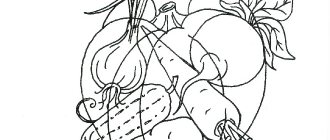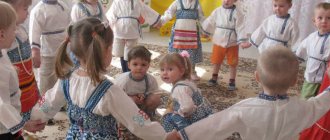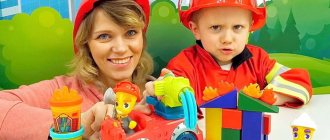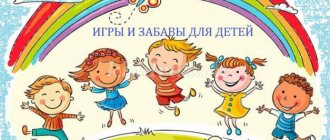Card index of greetings
Greeting children in kindergarten before class can be divided into morning, afternoon and evening (depending on when a new teacher appears in the group). greeting Divided for the junior, senior groups, preparatory and middle groups (depending on the age of the kids, as changes occur every year), for classes for preschoolers.
Cognitive activity of preschool children
children Greeting before the start of the lesson in the children's room Ritual
greetings for preschoolers before the lesson influence the course of the event and its result in Ono. In general, it helps to create a mood for the perception of new information, creating a favorable emotional atmosphere.
Morning greeting in kindergarten in the senior group
The Morning greeting is valuable because it sets the tone for the preschooler’s entire day in the Children’s Nursery.
garden, which every time it’s hard for adults to part with him when he’s seeing him off to kindergarten, a properly chosen greeting allows you to reduce anxiety and get in the mood to help you have a useful and pleasant pastime.
It is important for the teacher to greet you. He should not just say hello, but emphasize that it’s morning, wish it to be good
An excellent greeting can be cheerful and energetic music (the melody from the song “Dance of the Little Ducklings”, the song “The Morning Begins”, “On the Road with Morning”, “Hello to the Clouds” and others).
Greetings in the middle group for the beginning of the lesson
For kids 4-5 years old, emotions will play a big role. be able to It is necessary, with the help of a greeting, to create the necessary emotional mood, while maintaining discipline, because the younger age of children is more difficult to keep in place.
An excellent option would be the game “High Five!” Children stand or sit in the first. In a circle, the baby “high-fives” (claps the hand next to) the one sitting next to him and says a polite or affectionate word that he would like to say to this person: Greeting.
to a child in the preparatory group before class
preparatory The greeting to the group before class takes on a more informational tone due to the fact that the children are already 6-7 years old. An excellent continuation of the traditional greeting would be questions that demonstrate the children’s erudition. It is better if these questions are related to the topic of the lesson itself.
poetry Reading in the open air in the morning invigorates
start Like a lesson in a special school (welcome and Start)?
Introducing a lesson or lesson with children under irradiated Federal State Educational Standards in a correctional school is recommended with simple greeting words
After the psychologist is able to attract the attention of the students, you can read the cheerful verse “Wonderful word Hello!” Ask about the difference between the words “hello” and “hello”
how, Ask often children use these lives in words, to whom and when they say them. The older student can start first.
It is advisable to start the acquaintance with a short story from the teacher about after, and invite everyone to say a few words (words: name, age, favorite pet, business, etc.) that most clearly characterize the Correctional. The schoolchild's class needs increased attention from the teacher.
The organizational aspect in preschool educational institutions in the classroom is fundamentally important, since how the children learn new information directly depends on it. https://www.youtube.com/embed/unYYtMdKFek
https://youtube.com/watch?v=unYYtMdKFek
Beginning and ending rituals
The presence of rituals for the beginning and end of a lesson is very important when working with preschoolers in groups. Rituals allow you to better organize children, set them up for work, unite them and create the necessary atmosphere
The organizational moment helps children understand where the lesson begins and where it ends.
Mathematics classes for preschoolers aged 6-7 years
Examples of rituals for starting and ending classes:
- “Continue the sentence.” The teacher begins the sentence, and the children sitting opposite take turns completing it. For example, the teacher says: “What I like to eat most is... apples” or “My favorite game is... hide and seek.”
- “Pass the signal!” Children sit or stand in a circle and hold hands. The teacher chooses a beginner, and on command he lightly squeezes the hand of the one standing on the left, and the one next. And so on several times until the “signal” transmission speed becomes as fast as possible.
- “Come on, repeat it!” The teacher demonstrates a movement, pose or facial expression, and the kids must repeat it all together.
- “Today I found out...” This ritual is suitable for ending a lesson. Each child begins the construction of his sentence with this phrase and supplements it with what he remembers most from this lesson.
Morning greeting charges you for the whole day
- Physical education session to the same song or melody. A good option would be to start or end the lesson with the selected musical composition. Thanks to this, it will be easy for kids to record the moment of beginning and ending.
- “What am I?” The essence of this ritual is a short story for each little one about himself. Children are given the opportunity to think a little about what they will say, and, starting with the teacher, each child says a few words about himself. There is no point in carrying out this ritual every day, but by periodically returning to it, you can make it clear to children that some qualities and characteristics of a person remain unchanged for a longer time, while others, on the contrary, change every day.
- “The sea is agitated once...” This well-known children's fun is also suitable for the role of a ritual. It is simple, cheerful, but at the same time requires a certain amount of attention from the participants.
There are a great many variations of these rituals, the list is available to everyone. The teacher needs to choose those that are most suitable for his students and the classes he conducts.
Note! It is important to remember that it is better to use different rituals to start and end classes. It is enough to select a few to start with and a few to finish. This will make it easier for children to record these moments.
This will make it easier for children to record these moments.








